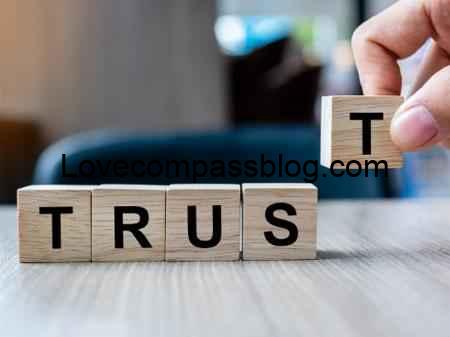Maintaining Healthy Relationships with Ex-Partners: A Comprehensive Guide

Ending a relationship can be one of the most challenging experiences in life. However, the connection with an ex-partner doesn’t always end with the breakup. Whether due to shared responsibilities like children or mutual social circles, maintaining a relationship with an ex may be necessary. The key is to ensure that this relationship remains healthy, respectful, and beneficial for everyone involved. This guide explores how to navigate these post-breakup relationships effectively, offering practical strategies to manage emotions, communicate clearly, and establish boundaries.
Emotional Aspects of Post-Breakup Relationships

Emotional Detachment from an Ex
Emotional detachment is the process of separating yourself emotionally from the person you once had deep feelings for. This is not about cutting off all feelings suddenly but rather about allowing yourself to process these emotions in a healthy way. Detaching emotionally means accepting the reality of the breakup, understanding that the romantic relationship has ended, and recognizing the need to focus on your own emotional health.
One effective strategy is to create a mental boundary between your past relationship and your present life. Acknowledge the good times you had but remind yourself why the relationship ended. Avoid situations that could reignite old feelings, such as re-reading old messages or revisiting places that were significant to your relationship. Instead, engage in activities that bring you joy and help you reconnect with yourself. Whether it’s picking up a new hobby, spending more time with friends, or focusing on your career, these actions can help you rebuild your sense of self apart from your ex.
Handling Residual Feelings
Even after a relationship ends, it’s common to still have lingering feelings, especially if the breakup was recent or if you were deeply in love. Handling these emotions requires self-awareness and honesty. It’s important to admit to yourself what you are feeling—whether it’s love, anger, sadness, or guilt—so that you can address these emotions directly.
If you’re struggling with feelings of love or attachment, give yourself permission to grieve the relationship. Grieving is a natural part of the healing process. Allow yourself time to feel sad, but don’t let these feelings control you. Talk to a trusted friend or therapist to help sort through your emotions.
Guilt, particularly if you initiated the breakup, can be another challenging emotion to handle. You might feel responsible for your ex’s pain or for how the relationship ended. To move past this, it’s crucial to focus on the reasons behind your decision. Understand that ending a relationship is sometimes necessary for the well-being of both parties. Self-forgiveness is key to overcoming guilt, and it allows you to move forward without carrying unnecessary emotional baggage.
Emotional Independence
After a breakup, it’s essential to regain your emotional independence. Emotional independence means relying on yourself for emotional support rather than your ex-partner. This is particularly important in a post-breakup context, where lingering dependence on an ex can prevent you from fully moving on and living your life to the fullest.
Start by building a support network that doesn’t include your ex. This could include friends, family, or a counselor. Engage in self-reflective practices like journaling or meditation to better understand your feelings and to nurture your emotional well-being. By reinforcing your emotional independence, you’ll be better equipped to handle interactions with your ex without reverting to old patterns of reliance or attachment.
Communication Strategies

Maintaining Healthy Communication with an Ex
Communication is the foundation of any relationship, including one with an ex. When you need to stay in contact, whether for co-parenting or mutual responsibilities, it’s important that your communication remains clear, respectful, and focused on the topic at hand. Avoid letting conversations drift into personal or emotional territory unless it’s necessary.
It’s beneficial to establish a communication plan. Decide on the methods of communication—whether it’s through text, email, or phone—and agree on the times that work best for both of you. Keeping conversations focused on practical matters helps avoid unnecessary emotional entanglements. Always approach these interactions with respect and kindness, recognizing that both of you are navigating a complex situation.
Setting Boundaries
Boundaries are essential in maintaining a healthy relationship with an ex. Without them, it’s easy for old patterns to resurface, leading to confusion and potential conflict. Establishing boundaries involves defining what is acceptable behavior and what is not, for both you and your ex.
Begin by discussing these boundaries openly with your ex, ensuring that you’re both on the same page. This could include agreeing not to discuss certain topics, limiting communication to specific times, or avoiding spending time alone together. Boundaries are personal and can vary widely depending on the nature of your relationship and the reasons for your breakup. What’s important is that these boundaries are respected consistently, as they provide a framework that protects both your emotional health and the integrity of your new relationship dynamic.
If you find that maintaining boundaries is difficult or that your ex is not respecting them, it may be necessary to reassess your contact and consider more drastic measures, such as limiting or cutting off communication altogether.
Professional and Social Interactions
If you work with your ex or share the same social circles, maintaining a professional and composed demeanor is essential. In professional settings, keep interactions strictly business-related. Avoid bringing up personal matters or discussing your past relationship. Focus on being efficient and cooperative, which will help minimize any awkwardness and maintain a productive work environment.
In social settings, the goal is to be polite without being overly familiar. If you find yourself at the same event or gathering, it’s okay to exchange pleasantries, but don’t feel pressured to engage in extended conversations. It’s perfectly acceptable to excuse yourself from the situation if it becomes uncomfortable. Over time, as you adjust to the new dynamics, these interactions will become easier.
Friendship and Rebuilding Trust

Post-Breakup Friendship
For some, transitioning from a romantic relationship to a friendship can feel natural. However, it’s important to recognize that this isn’t always possible or advisable for everyone. Friendship with an ex requires both parties to have fully moved on from the romantic aspect of their relationship. Without this, there’s a risk of unresolved feelings complicating the friendship.
If you choose to pursue a friendship, it’s crucial to set clear expectations from the start. Discuss what friendship will look like—how often you’ll be in contact, what topics are off-limits, and how you’ll handle new romantic relationships. A friendship with an ex can offer emotional support and a sense of continuity, but it’s essential to ensure that it doesn’t hinder your emotional growth or your ability to form new, healthy relationships.
Rebuilding Trust After a Breakup
Trust is the cornerstone of any relationship, including one that has transitioned from romantic to platonic. If the breakup was due to a breach of trust, such as infidelity or dishonesty, rebuilding trust may be necessary if you intend to maintain a relationship of any kind.
Rebuilding trust requires transparency, consistency, and time. Both parties need to be honest about their intentions and committed to repairing the relationship, whether it’s as friends or simply as civil acquaintances. It’s important to acknowledge past mistakes, make amends where possible, and demonstrate through actions that the behavior has changed. Rebuilding trust is a gradual process, but with patience and effort, it is possible to restore a sense of mutual respect and understanding.
Positive Interactions with Exes
Maintaining positive interactions with your ex, especially if you have regular contact due to children or shared responsibilities, is crucial for your emotional well-being. Focus on keeping conversations constructive, avoiding blame, and approaching interactions with a mindset of mutual respect.
Jealousy can be a significant challenge in post-breakup relationships, especially if one or both parties are in new relationships. Managing jealousy involves clear communication, reassurance, and respecting boundaries. It’s important to remind yourself and your ex that the romantic part of your relationship is over and that your interactions should reflect that understanding.
Co-Parenting and Family Dynamics

Coparenting with an Ex
Co-parenting is one of the most common reasons for maintaining a relationship with an ex. The success of co-parenting largely depends on the ability of both parents to communicate effectively and to prioritize the well-being of their children above all else.
To co-parent successfully, it’s essential to establish clear and consistent communication about parenting decisions, schedules, and responsibilities. This might involve setting up a shared calendar, having regular check-ins, and discussing any issues that arise in a calm, respectful manner. It’s also important to present a united front when it comes to parenting, ensuring that your children see you as cooperative and aligned in your parenting goals.
Managing a Blended Family
Blended families bring additional challenges, particularly when ex-partners are involved. Balancing these relationships requires open communication and careful consideration of everyone’s feelings, including those of children and new partners.
When managing a blended family, it’s important to establish roles and expectations early on. Discuss with your ex how you will navigate interactions involving children from different relationships, holidays, and other family events. It’s also crucial to have open discussions with your new partner about their role in the family and how they feel about interactions with your ex. By fostering an environment of cooperation and respect, you can create a harmonious family dynamic that benefits everyone involved.
Dealing with a Difficult Ex
Not all exes are easy to deal with, and in some cases, you may find yourself dealing with a difficult or even hostile ex-partner. In such situations, it’s important to remain calm and composed, focusing on clear, direct communication and setting firm boundaries.
If your ex is prone to conflict, consider limiting communication to written forms like email or text, which can be less emotionally charged and provide a record of interactions. If necessary, seek mediation services or legal assistance to help manage particularly contentious situations. When dealing with a difficult ex, it’s essential to prioritize your well-being and that of any children involved. Protect your emotional health by minimizing unnecessary contact and focusing on positive, supportive relationships in your life.
Moving On and Personal Growth

How to Move On After a Breakup
Moving on from a relationship is a deeply personal process that involves both emotional healing and personal growth. It’s important to allow yourself time to grieve the end of the relationship, but equally important to actively engage in activities that help you move forward.
Start by reflecting on what you’ve learned from the relationship. This can involve considering both the positives and the negatives, understanding what worked and what didn’t, and using these insights to guide future relationships. Engaging in self-care practices, such as regular exercise, mindfulness, and spending time with loved ones, can also play a crucial role in your healing process.
Another important aspect of moving on is focusing on your personal goals. Whether it’s advancing in your career, developing new skills, or exploring new hobbies, redirecting your energy towards personal growth can help shift your focus away from the past relationship and towards a positive future.
Rebuilding Self-Identity
After a breakup, it’s common to feel like you’ve lost a part of your identity, especially if the relationship was long-term. Rebuilding your self-identity involves rediscovering who you are outside of the relationship and what makes you happy.
Begin by reconnecting with activities and interests that you may have set aside during the relationship. This could be anything from pursuing a creative passion, spending time in nature, or reconnecting with old friends. Additionally, consider setting new goals for yourself that reflect your personal values and desires. Rebuilding your self-identity is about embracing who you are now and who you want to become.
Embracing New Relationships
Once you’ve allowed yourself time to heal and rebuild your life, you may feel ready to embrace new relationships. It’s important to approach new relationships with a clear understanding of what you want and what you’ve learned from the past. This will help you avoid repeating old patterns and foster healthier, more fulfilling connections in the future.
When entering a new relationship, ensure that you’ve fully moved on from your ex and that any lingering emotional ties have been resolved. This will help you to enter the new relationship with a clean slate, free from the baggage of the past. Embracing new relationships is about being open to love again, but with a stronger sense of self and a deeper understanding of what makes a relationship healthy and successful.
Conclusion
Maintaining a healthy relationship with an ex-partner is a complex but achievable goal. It requires emotional maturity, clear communication, and well-defined boundaries. Whether you’re co-parenting, working together, or simply aiming for a civil post-breakup friendship, these strategies can help you navigate the challenges and create a positive, respectful dynamic. Ultimately, the goal is to ensure that any ongoing relationship with your ex supports your well-being and contributes positively to your life.





